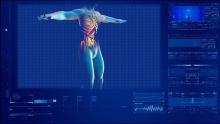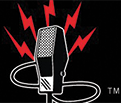Talking Telehealth with Danika Tynes, Ph.D. - Community Broadband Bits Podcast 397

In February, Christopher was in North Carolina at the Institute for Emerging Issues Forum at North Carolina State University. While he was there, he had the opportunity to conduct several interviews with people engaged in research, working with boots on the ground to expand broadband, or advocating for better policy so more people have access to high-quality Internet access. One of the people he spoke with was Danika Tynes, Ph.D., a Senior Research Associate from the Georgia Tech Research Institute.
One of Danika's areas of expertise is telehealth, which continues to expand in relevance and application with new innovations and the expansion of broadband access. During the conversation, Danika discusses some of the results of her research, including the elements that help telehealth efforts succeed. She also discusses how telehealth applies in different environments and how data can be used to improve its applications for patients and healthcare professionals. Danika also shares a personal experience that illustrates how telehealth is actually more ingrained in our daily lives than we realize.
This show is 29 minutes long and can be played on this page or via Apple Podcasts or the tool of your choice using this feed.
Transcript below.
We want your feedback and suggestions for the show-please e-mail us or leave a comment below.
Listen to other episodes here or view all episodes in our index. See other podcasts from the Institute for Local Self-Reliance here.
Thanks to Arne Huseby for the music. The song is Warm Duck Shuffle and is licensed under a Creative Commons Attribution (3.0) license.



 As the American Heart Association reports
As the American Heart Association reports